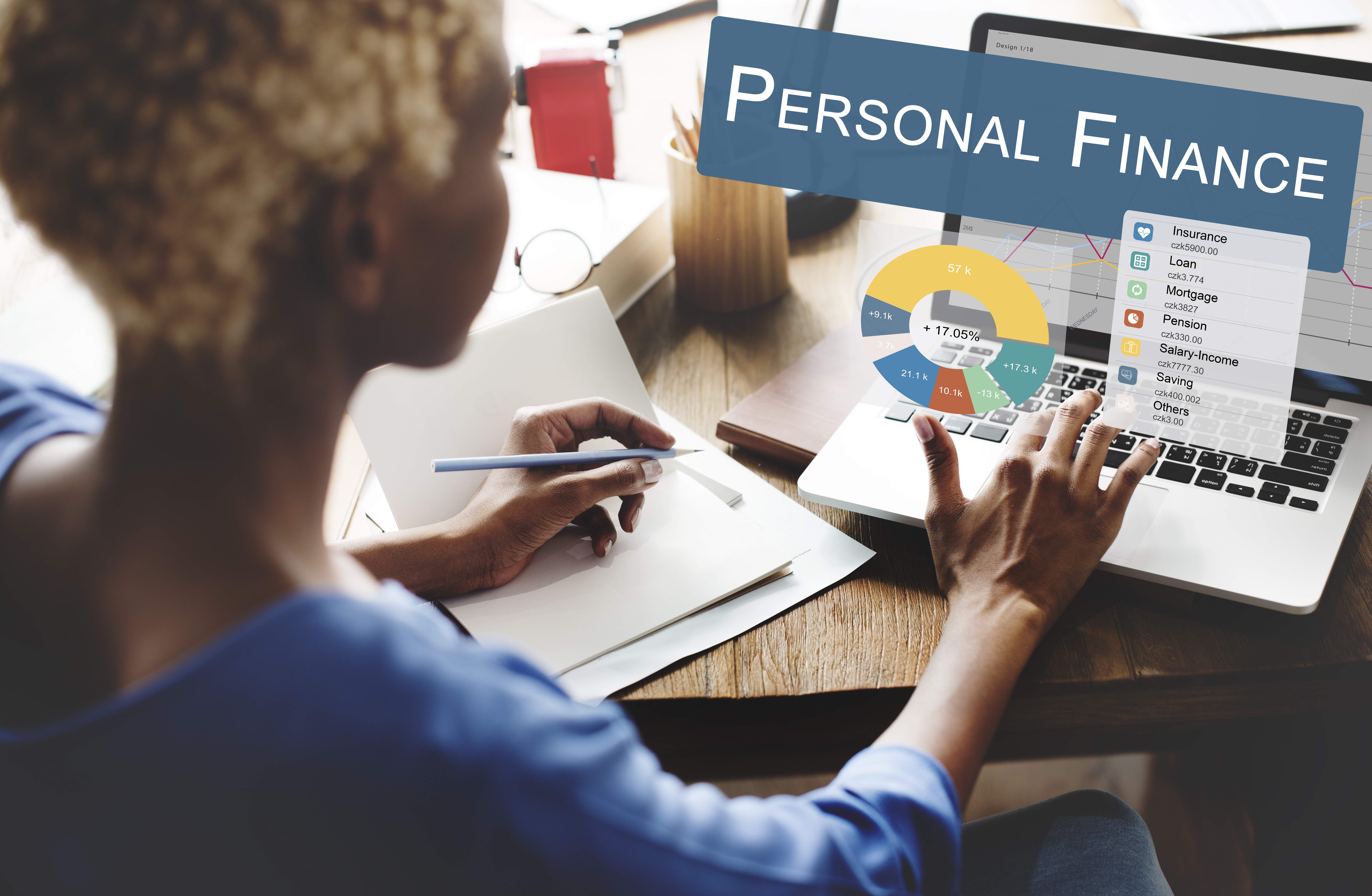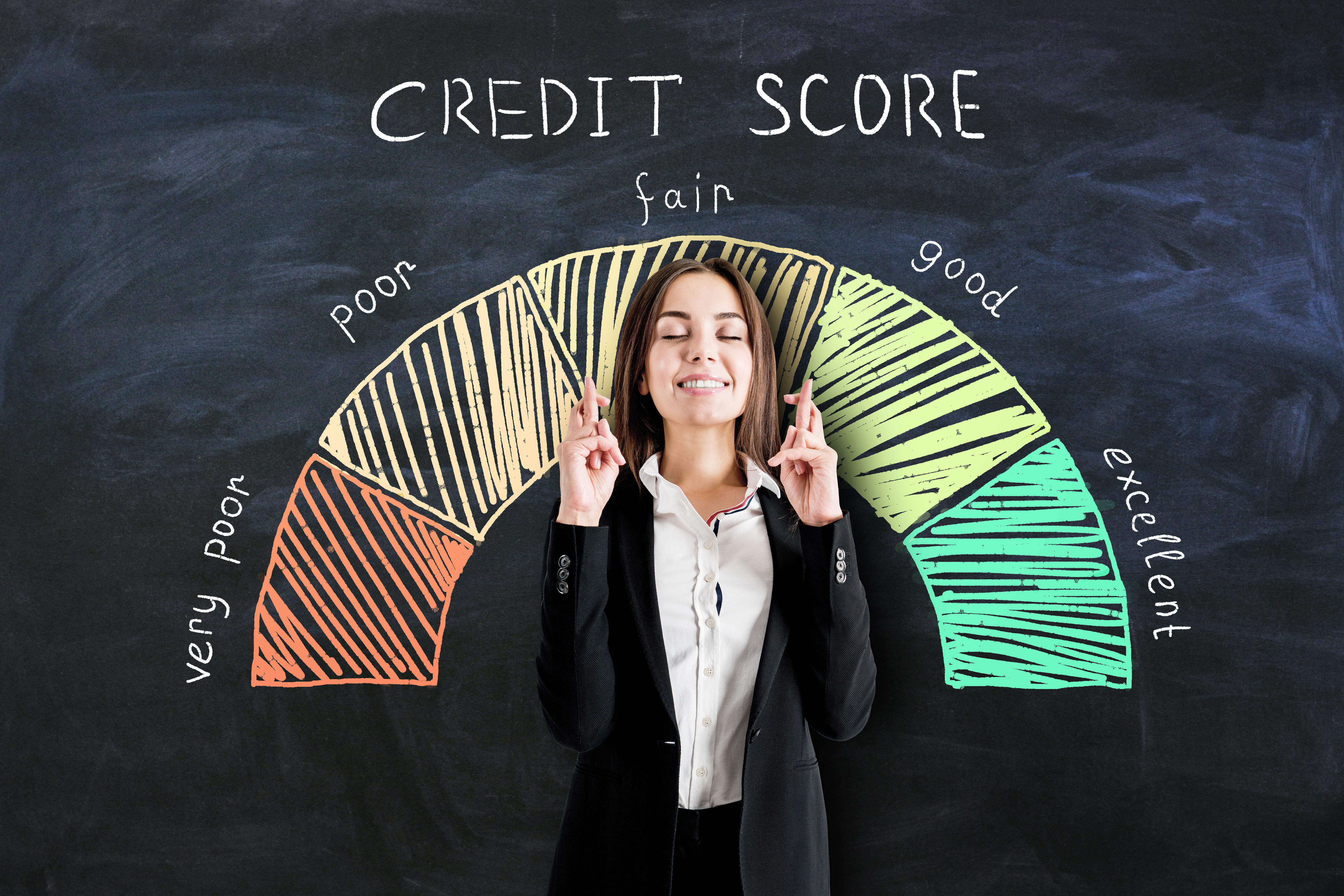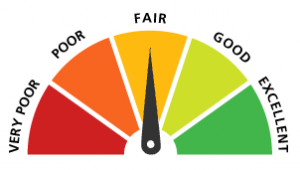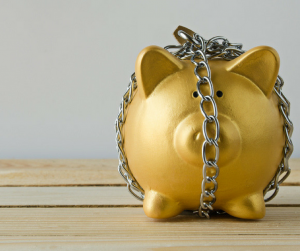Personal Finance
Fraudulent ICOs Are On The Rise. Here’s How To Spot (And Avoid) Them
Published
7 years agoon

Initial coin offerings (ICOs) are all the rage these days as cryptocurrencies continue to attract enthusiasts and speculative investors, but for each credible ICO, there may be at least 10 shady ones. The Securities and Exchange Commission has shut down numerous fraudulent ICOs over the last couple of years.
Regulators have also been issuing guidance for investors who are captivated by cryptocurrencies and ICOs, but despite all the information that’s available now, many investors are still being tricked by fraudulent ICOs.

Focus Bitcoin Bit Coin Cryptocurrency Blockchain
So how can you tell if an ICO is a legitimate investment or a scam that just aims to steal your money? There are several things to look out for.
What is an ICO?
In order to recognize the danger signs associated with initial coin offerings, we first must establish exactly what they are.
Most investors who are thinking about diving into digital currencies have a vague sense of what ICOs are and that they have something to do with cryptocurrencies, but the details are generally sketchy for many investors.

Finance Currency Bitcoin Crypto Cryptocurrency
ICOs are essentially a form of crowdfunding that involves the use of cryptocurrencies. They’ve become a trendy way for startups to get capital from the general market rather than relying on venture capitalists or involving other intermediaries in the funding process.
Companies that are conducting ICOs sell tokens for cash or established cryptocurrencies, such as bitcoin. When the funding goal for the ICO is net, the project should launch, and then the tokens that were sold become a new cryptocurrency.
Regulators discuss cryptocurrency classification
Unfortunately, scammers have preyed upon uninformed investors who are crypto enthusiasts, and as a result, regulators have had to step in.
The SEC has also been working to classify cryptocurrency and its related products, including ICOs, and one of the debates has been whether or not they are considered securities, making them subject to federal securities laws.
William Hinman, who leads the Corporate Finance division at the SEC, weighed in on that very topic recently in a speech at the Yahoo All Markets Summit: Crypto.
Essentially, he said that what makes a cryptocurrency a security is actually how it is sold rather than what it is.
In other words, initial coin offerings are often considered to be securities because of the nature of the transactions, even though the cryptocurrency itself that comes out of the ICO isn’t necessarily a security—because the nature of the sale of it is different.
Thus, ICOs are generally subject to federal securities laws in the U.S. because investors buy into them and receive a financial interest in the project in return.
However, selling a token on the secondary market later as a one-off transaction without a financial interest in return does not constitute the sale of a security.
How the Howey test can help you spot fraudulent ICOs
The SEC has selected the case SEC v. Howey to use as precedent when it comes to determining whether a crypto product is subject to federal securities laws or not. The case can also help investors cut through all the marketing talk around an ICO as they try to figure if it’s a scam or not.
The Howey case revolved around a hotel owner that was selling interests in an orange grove and recording the transactions as sales of real estate rather than securities.
Most of those who bought interests in the grove had the hotel owner’s other company care for the trees, pick the oranges, and earn them a profit from their interest in the orange grove.
The Supreme Court ended up ruling that the transactions actually constituted sales of securities and not real estate, as two lower courts had ruled previously.
The result of the Howey case was that regulators now often use what’s called the “Howey test,” which is used to determine whether a transaction is a sale of securities or of something else.
An investment contract or security constitute an investment made in “a common enterprise with profits to come solely from the efforts of others.”
If that requirement is fulfilled, then it doesn’t matter whether the common enterprise is a speculative investment or whether a sale of some kind of property with intrinsic value (in the case of ICOs, tokens).
It’s important for ICO investors to understand the Howey test because it can help them determine if the ICO they’re considering is indeed a security.
That’s the first step to protecting yourself from fraudulent ICOs because securities laws should offer some protection, but there’s no better protection than education.
The best protection from fraudulent ICOs: education
The SEC has been working hard to educate investors about the dangers of ICOs and help them make informed decisions when it comes to investing in them.
It continues to be an uphill battle against the many scammers who find eager investors to be easy prey, but those who absolutely have their mind set on investing in initially coin offerings learn how to spot fraudulent ones.

It’s important to approach every ICO with the mindset that the vast majority are scams, and even those that aren’t present a risky investment.
In order to help consumers understand what fraudulent ICOs look like, the SEC launched its own fake ICO called HoweyCoins to demonstrate the red flags consumers should look out for.
Generally, fraudulent ICOs are easily recognizable by the claims that sound too good to be true and promises of “guaranteed returns.”
The reality is that no investment product can offer an investor guaranteed returns because they can’t know with certainty how well their product will go over.
Other key features of fraudulent ICOs include vague language or heavy use of jargon, so much that their website basically says nothing of importance.
Everything about the product remains unclear after you read the site. ICOs generally always include a white paper explaining the crypto network that they plan to build and its potential uses.
If you can’t understand what the tokens you’re investing in will be used for, it’s probably not a good investment.
Questions to weed out fraudulent ICOs
If you’re seriously considering a particular ICO right now, here are some questions you should be asking before handing over your cold, hard cash, based in part on some of the commentary by SEC Chairman Jay Clayton.
1. Who is behind the ICO? Typically, offerings include details on the team that’s building the crypto network.
In some cases, fraudulent ICOs have invented people with excellent qualifications, while in others, they claim qualified people are involved when they actually aren’t.
Even in the case of legitimate ICOs, it’s important for you to know who is selling the tokens so that you can judge their ability to build a successful crypto network.
2. What happens to your money when to buy in? What’s it going to be used for? Is it going to actually build the network, or will it be used to pay back others?
3. Has there been any documentation on what the team that’s running the ICO has done so far? If there isn’t, then their white paper should be perfect because they have no proof of concept yet.
4. What rights will you have when you buy into the ICO?
5. Are there audited financial statements available?
6. Can you sell tokens back to the company to get your money back? Or can you resell the token to someone else? What kinds of limitations are there on getting your money back out?
7. What will be the purpose of the blockchain that’s being created through funding from the ICO? Does it sound like a viable product? Has the blockchain code been released yet?
8. Does the ICO comply with all securities laws? What steps have they taken to ensure that they are complying with the law?
Perhaps the biggest reason so many scammers have been able to rake in millions of dollars via fraudulent ICOs is because cryptocurrency seems like some mysterious form of technology that enthusiasts are convinced will be the goldmine of the future.
It’s just generally not a good idea to invest in something that you don’t understand—unless you know someone who understands it very well and you trust their judgement on it.
You may like
-
The Top 10 Investment Opportunities To Capitalize On During A Recession
-
5 Tips To Pricing Your Airbnb Listing For Maximum Profits
-
Airbnb Experiences: 5 Easy Ways To Make Extra Cash Today
-
10 Tips for Making More Money with Your Airbnb Listing
-
From Pet Rocks to Potato Parcels: 5 Crazy Ideas That Made Millions Online
Personal Finance
DIY: Money Management Tips That Will Improve Your Finances
Published
4 years agoon
January 11, 2022
Even if you’re not looking for a property this exact second, you always want to be improving your position.
So, focus on the downtime to improve your finances, get your debt squared away, and put yourself in a better position when you are ready to buy!
It’s important to be sure of your financial position before you buy a property because you might find it’s harder to get that property than you would have originally thought.
Here are some personal finance tips to help you save, pay down more debt, and qualify for better loans.
Pay Attention
One of the most common reasons that people struggle financially is because they simply don’t pay attention to what is going on in their own financial life. If you are not paying attention, you can’t hope to know what is going on and therefore know how to improve matters.
Read these money management tips to start paying attention to your finances.

When I’m working on a project, I’m laser-focused on the budget, the details, the costs, etc. But, sometimes in my personal life, I let this slide.
The reality is, when we do have a budget and focus on sticking to it, our bank account balances grow so much faster than when we aren’t using one.
I love to eat out, and my wife loves to buy small things around the house. One day, we looked back over the previous year of spending and found we each averaged over $1,000 per month on our hobbies!
By pulling back a little in each area, we were able to save over $1,000 per month but still do the things we enjoyed.
So, start by having a budget!
Even if you are financially well off and can afford most of what you want, by budgeting for the items and spreading the costs out over several months, you’ll find that you buy less, spend less, and save more.

Also, if you budget to pay down certain debts faster, you’ll see those balances dramatically drop!
So, do not overlook the importance of a family budget.
Save On Other Purchases
There might be a number of other big purchases you need to make before you get hold of your next property, and it is a good idea to make sure that you are only spending as much on those as absolutely necessary.
For any big ticket items, we actually start searching for them months or even a year in advance. For example, let’s consider kitchen appliances.
As you know, a full set of appliances can easily cost $5,000-$10,000 if you are getting high-end products. It includes a fridge, double oven, gas cooktop, microwave/fan, and dishwasher.
The first thing we did was go to the store and decide on two or three brands, styles and product lines we wanted. It’s hard to compare prices unless you are looking at similar products between stores.
Then, for months we’ll watch these items and their prices. Occasionally there will be sales and by tracking the pricing all year, we know which sales are worth getting or not. When we feel we are getting the best price, we’ll buy.
And by doing that, we can easily save $500-$1,000 or even more.
We did something similar with our TV, computer monitors, etc. Basically, anything that is currently working that we want to upgrade. Over the course of a year, we are saving thousands of dollars.
You might also use a money saving app to help.
Saving money in all these places will make an enormous difference when it comes to saving for your next down-payment
Pay Down Debt
With all the money you are saving by budgeting and by planning out major purchases, you might want to use some of it to pay down debt.
You’ll have to decide if it’s better to pay down debt or have a larger down payment because both will hold you back on your next purchase.

But, generally, paying down $1/month in debt is worth about $3/month in income. At least, as far as loans are concerned.
If you do decide to work on paying down your debt, I fully detail a unique debt pay down method to get you into your next rental property faster.
Increase Your Income
Most people just focus on debt, but the reality is you can only cut your expenses so much.
Income, on the other hand, has unlimited potential. So, why not focus on growing your income?
Increasing your monthly income can be done in a number of passive and active ways, and it is worth looking into as many of these as you can to find the right one for you. I outline a number of ways to increase your income in this article on how to earn $10,000 per month.
While earning $10,000 per month in side-income might seem a long way off, it’s important to start! Even if you can earn an extra $500 month now, and grow it slowly over time, it’s worth it!.
Don’t Focus on Just One Thing
As I mentioned already, focusing on just budgeting, or debt paydown can be detrimental to your overall financial goals. It’s important to combine a number of different things into an overall strategy, which includes budgeting, debt paydown, and increasing your income.
To know more about real estate hack, money tips, and building generational wealth, subscribe to Wealthlab and learn how to bust through the barriers preventing you from becoming a millionaire.
This article originally appeared on IdealREI. Follow them on Facebook, Instagram and Twitter.
Personal Finance
VIDEO: 3 Things You MUST Know About Your Credit Score
Published
4 years agoon
October 18, 2021
We all know what a credit score is. Sort of. But what really goes into your credit score? In this video, Investopedia breaks it down. Here are the top 3 factors that affect your credit score — and what you can do about it.

If financial difficulties are keeping you awake at night, take action and tackle your problems head on otherwise they are likely to get worse. The ability to pay for rent, mortgages, bills, and food are fundamental to our quality of life.
It is important to plan for future financial hardship by making saving a goal and budgeting carefully. It’s impossible to predict what will happen in the future, so to cushion any financial hardship, it’s worth putting a little money aside each month.
Developing a savings plan now will enable you to get on with living your life stress-free! Here are the financial tips to start building your wealth.
Reduce monthly bills
List all your current outgoings and look to see if you can make any savings. Often it’s tempting to keep the same standing order from the same insurance company for year upon year. You are likely to be paying too much for your premiums and it’s worth shopping around and switching.
Look at the amount of interest you are paying on loans, mortgages and credit cards, you could be able to secure a better deal. One thing to remember is to check your credit score if it is poor lenders won’t give you the best interest rate.

It is possible to repair your credit score by using the expertise of a credit repair company.
Utility bills can be reduced by switching utility providers. Use an online comparison site to secure the best deal. Switching is easy as most of the work is completed for you by your new supplier.
Budget
To budget carefully you need to be in control of your spending and to be in control you need to be aware of your income and outgoings. List every necessary outgoing that must be met on a monthly basis and you will be left with an amount which will have been spent on miscellaneous items such as eating out.
You can then design a budget plan so that you can put a certain amount into a savings account. You will probably be surprised at how much your morning coffee costs when added up over the month.
Cut it down to once or twice a week and you will make significant savings.
Make savings work to your advantage
Savings (if you have them!) can work to your financial advantage. Ensure you choose the best financial products that give the maximum return on your savings. Financial products change rapidly to factor in a financial audit of your savings every couple of years to check savings are in the best account.
You could also consider investing your savings property or financial shares. This has the potential to be lucrative but is not without risk. Consider hiring a professional and independent financial advisor for advice.

Ideally, you should set apart some of your salaries each month in order to build up an emergency fund. Life can be unpredictable and without savings to fall back on, your car breaking down or your roof leaking could plunge you into more debt as you borrow to rectify the situation.
Savings will cushion the blow of any financial hardship.
Stop Paying Extra Bank or Late Fees
Late fees are not helping you. They add up over time – fees can even accrue fees!
If you are the kind of person who always forgets to pay their bills on time, you can get around this by automating your finances so that the money automatically goes out of your account.
You should also avoid making any extra charges on your credit card unless you are sure that you are able to pay it off in full at the end of the month.
Don’t Pay Full Price!
Paying full price is a really common financial mistake that a ton of people make.
In today’s world, you can find a sale on just about any item. If you see something you need at the store, take a few moments to shop for it online and you’ll probably be able to save 10-20%
Not only does this method stop you from overpaying, it also gives you a moment to think and decide whether or not what you were thinking of buying is actually a worthwhile investment.
Create a Financial Defense Plan
All of us need to not only earn our living and grow our finances if we’re to live a comfortable and happy life, but we must also defend them.
That means ensuring you stay rational, sensible and forward-thinking in all matters related to your financial health.
There are a few considerations you can take care of in order to make this so, and generate a cognitive and systemic financial defense to keep your money yours, and flowing in the direction you most want.
Here are the keys to defending your financial interests
Know Good Lawyers
The most important thing is to have good counsel and good advice. So, hire the best attorneys that you can afford. From real estate to contracts to brand protection, you need someone behind you making sure you aren’t making any major missteps.
The world practically runs in the courtroom now, unfortunately. So, with good attorneys on your side, it will keep you out of the courtroom and focused on running your business.
Have A Contingency Plan
It’s always best to have a fail-safe.
This might mean never tying up all your investments in one basket. It might mean diversifying your investments .
Or, it could mean allowing only one or two financial handlers to have any kind of insight into your money matters in the first place.

The key is to be able to have a solid plan but also be able to pivot to something else should the first plan fail.
With the willingness to keep a backup plan, or a mode of operation to take when something fails or doesn’t go the way you expect, you at least won’t lose anything.
Keeping a solid contingency is also reliant on keeping solid discipline with your financial means – without this none of your decisions are likely to land effectively.
Pore Over Contracts
Whenever signing a contract, or forging a new one, you need to know exactly what terms are referring to.
You also need to read between the lines, and consider what situations a certain stipulation could affect in the future. Remember, even vaguely written terms in a contract do not fall there unexpectedly.
They are either there to make or defend a certain form of income, or persuade and dissuade a certain type of behavior. Every word counts.
Remember the first recommendation? Well, here’s where they come in. But, it’s important to know how to read and interpret the contracts yourself as well.
Study contract terminology and simply dedicate the time to observe and understand.
Look For Weak Spots
What are the weak spots in your defense system?
Could it be family members having access to your accounts? Do you think it could it be emotional family members asking for financial help, when this is not genuine?
Or perhaps it could it be the services you bank with.
Don’t forget about the way you log in to your accounts and store passwords.
To prevent your finances from being breached, keep up to date on modern security measures. From there, you should be settled.
Conclusion
To reduce your financial stress, the key is to lower your costs, increase your passive income, and protect your assets.
To know more about real estate hack, money tips, and building generational wealth, subscribe to Wealthlab and learn how to bust through the barriers preventing you from becoming a millionaire.
This article originally appeared on IdealREI. Follow them on Facebook, Instagram and Twitter.
Top 5 Best Investment Strategies To Survive A Recession
The Top 10 Investment Opportunities To Capitalize On During A Recession
3 Gold Mining Stocks To Buy Today 📲
Ad 1
Trending

You’ve reached your free article limit.
Continue reading by subscribing.
Already a subsciber? Login >
Go back to Homepage >





You must be logged in to post a comment Login